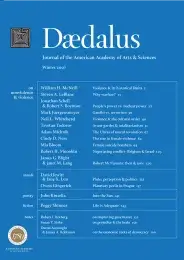Ethnic conflicts: Flemings & Walloons, Palestinians & Israelis
Because of mass demonstrations objecting to the presence of any francophone curriculum within a university situated in Dutch-speaking Flanders, the Belgian government negotiated a deal in 1968 that split the five-hundred-year-old Catholic University of Leuven into two institutions. Katholieke Universiteit Leuven (K.U. Leuven) remained in the old college town and became an entirely Dutch- (and English-) speaking university. A completely independent French-speaking Université Catholique de Louvain (U.C. Louvain) was formed and moved to a brand-new campus in Louvain-la-Neuve, a new town created in the Walloon (or French-speaking) region, about an equal distance from Brussels.
With the split, the existing library had to be divided. The disputants negotiated a typically Belgian compromise: those volumes with even call numbers went to U.C. Louvain and those with odd call numbers went to K.U. Leuven. When I arrived in Leuven in February 2006 as a visiting scholar,1 I was aware of this history and knew about Belgium’s language cleavage and linguistic frontier.2 But I thought the conflict between the Flemish and Walloon peoples was a thing of the past, of little contemporary relevance to my interest in ethnic conflicts in general and the Israeli-Palestinian conflict in particular. Two experiences were soon to suggest I might be wrong on both counts.
The first relates to the controversy concerning the “Manifesto for an Independent Flanders within Europe.”3 The argument of the 252-page manifesto can be easily summarized:
- Flanders and Wallonia have divergent needs and goals because they have profound differences–political, economic, social, and cultural.
- The two regions are artificially held together only by a “maladjusted and inefficient” federal governmental structure with antimajoritarian restrictions and a “chaotic distribution of powers.”
- As a result of this structure, rational and efficient policymaking is impossible, and Flanders is unable to adopt those policies necessary to maintain economic competitiveness and ensure future economic growth in the face of the socioeconomic challenges of an aging population, ever-growing globalization, and increasing international competition.
- A further result of this structure is that, at the national level, bad compromises are negotiated, which require the Flemish people to make “exorbitant and inefficient” financial transfers amounting to over 10 billion euros per year (about 1,734 euros for each Fleming) to Wallonia and Brussels. If Flanders remains part of Belgium, these subsidies are only likely to increase.4
- The only durable solution is the full independence of Flanders. Because of its economic and social development since World War II, Flanders has the identity and self-sufficiency to be a full-fledged national community with all the characteristics of an independent member state of Europe.5 . . .
To read the full essay, access the PDF of the volume.
